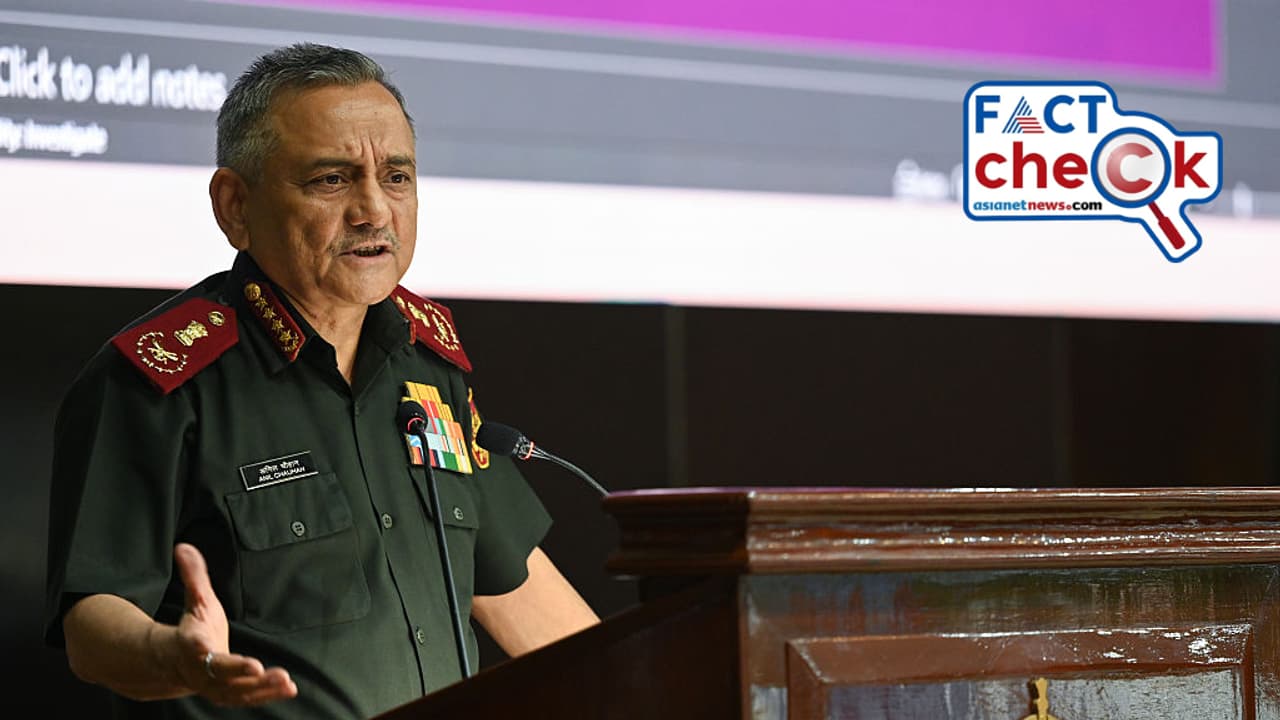The disinformation campaign, using AI-manipulated footage, aims to spread misinformation and potentially incite tensions between India and Pakistan. The public is urged to verify information before sharing and report suspicious content.
Bengaluru: In an alarming instance of disinformation, a digitally altered video falsely attributing a controversial statement to India’s Chief of Defence Staff (CDS), General Anil Chauhan, has been widely circulated on social media platforms. The manipulated clip attempts to show General Chauhan praising the Pakistani military, stating: “Never mess with Pakistan because their army appears to be far more superior and advanced.” However, this statement is completely fabricated and has been debunked by Press Information Bureau (PIB). The Press Information Bureau (PIB) Fact Check unit has categorically stated that General Anil Chauhan has made no such statement at any public or official event. The video in circulation is a product of deepfake technology, a malicious tool increasingly used to distort reality and mislead audiences for political or ideological motives. “The Chief of Defence Staff has made NO such statement. Deepfake technology is being misused to mislead and spread disinformation,” said the PIB in an official post.
Scroll to load tweet…
Understanding the Threat of Deepfakes
Deepfake videos use artificial intelligence to manipulate footage, replacing a person’s likeness or altering audio to create a seemingly real—yet entirely fake—piece of media. These videos are often indistinguishable from authentic ones to the untrained eye and pose a significant threat to public discourse, national security, and personal reputations. In this case, the doctored video serves as a classic example of information warfare, aiming to undermine public trust and sow discord by targeting high-ranking officials of the Indian Armed Forces.
Why It Matters
Such deceptive content can have far-reaching consequences:
- Undermining National Security: Misleading portrayals of military leadership can damage morale and erode public trust.
- Fueling Tensions: Fake statements can inflame diplomatic or regional tensions, especially between neighbouring countries like India and Pakistan.
- Spreading Misinformation: In the age of social media, false narratives can spread rapidly before they are debunked.
What You Can Do
The public plays a crucial role in fighting the spread of misinformation. Here’s how you can help:
- Verify before sharing: Always cross-check information, especially sensational or controversial content, with official government sources or trusted fact-checking platforms.
- Be skeptical of viral videos: If a video seems shocking or out of character, it might be manipulated.
- Report misleading content: Most social media platforms allow users to report fake or harmful content.
